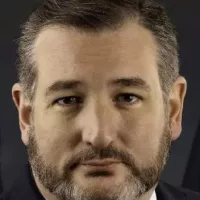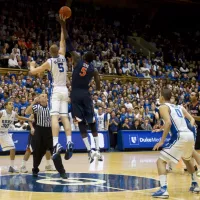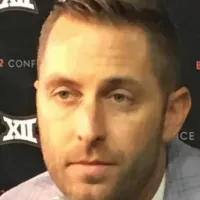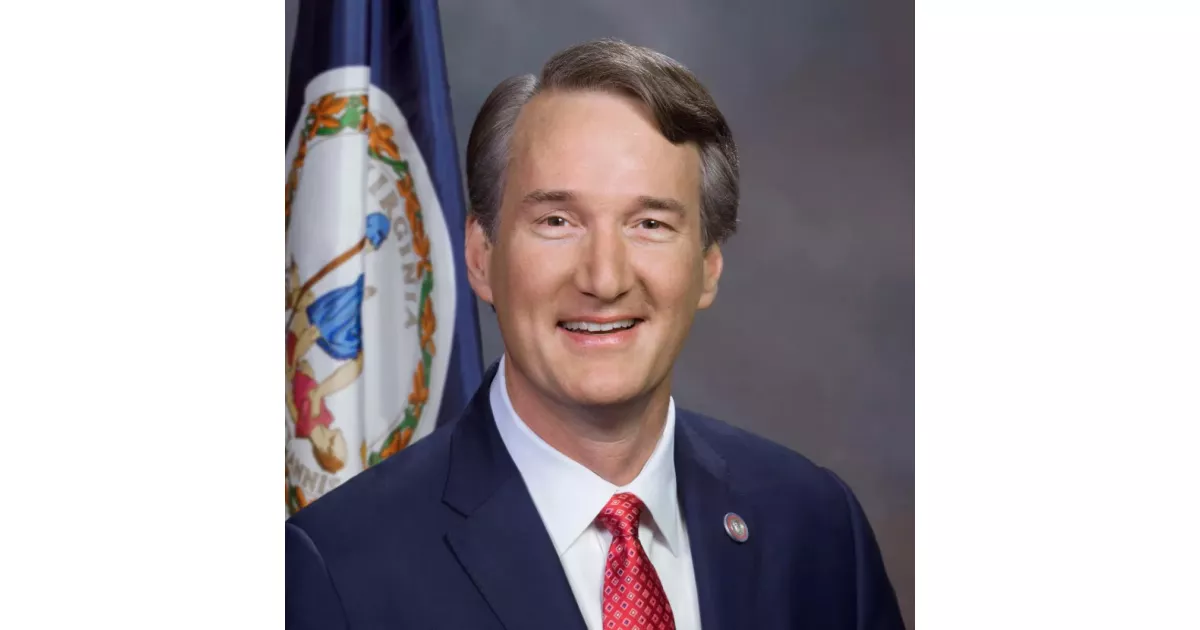Discover the career path of Glenn Youngkin, from the first major opportunity to industry-changing achievements.
Glenn Youngkin is an American businessman and politician currently serving as the 74th Governor of Virginia since 2022. As a Republican, his prior experience includes a 25-year career at The Carlyle Group, a private equity firm, where he rose to become co-CEO in 2018. Youngkin resigned from his position in 2020 to pursue his career in politics, eventually leading to his successful run for governor.
1990: Joined First Boston
In 1990, after graduating from Rice University, Glenn Youngkin joined the investment bank First Boston.
1992: Left Credit Suisse First Boston
In 1992, Glenn Youngkin left Credit Suisse First Boston, which had bought out First Boston, to pursue an MBA.
1994: Joined McKinsey & Company
In 1994, after receiving his MBA, Glenn Youngkin joined the management consulting firm McKinsey & Company.
August 1995: Joined The Carlyle Group
In August 1995, Glenn Youngkin joined The Carlyle Group as a member of the US buyout team.
1999: Named Partner and Managing Director at Carlyle
In 1999, Glenn Youngkin was named a partner and managing director of Carlyle.
2000: Managed UK Buyout Team
From 2000 to 2005, Glenn Youngkin managed The Carlyle Group's United Kingdom buyout team.
2005: Managed Global Industrial Sector Investment Team
From 2005 to 2008, Glenn Youngkin managed The Carlyle Group's global industrial sector investment team.
2006: Daniel G. LeBlanc's nomination rejection
In 2006, Daniel G. LeBlanc, an AFL–CIO chief nominated by Tim Kaine to serve as Secretary of the Commonwealth, was rejected by Republicans.
April 2008: Focused on Carlyle's Broader Strategy
In April 2008, Glenn Youngkin was asked by Carlyle's founders to step back from deal-making to focus on the firm's broader strategy.
2008: Divided time between London and Washington
Between 2005 and 2008, Glenn Youngkin divided his time between London and Washington while managing The Carlyle Group's global industrial sector investment team.
2009: Republicans Had Not Prevailed Since 2009
Before the 2021 election, Republicans had not prevailed in a statewide race in Virginia since 2009.
2009: Chaired Operating Committee and Joined Executive Committee
In 2009, Glenn Youngkin chaired a seven-person operating committee overseeing Carlyle's day-to-day operations and joined the firm's executive committee.
2009: First Republican Governor since Bob McDonnell
In 2021, Glenn Youngkin became the state's first Republican governor since Bob McDonnell in 2009.
2010: Founding of Holy Trinity Church
In 2010, Glenn Youngkin and his wife helped found Holy Trinity Church, which initially met in their basement in McLean. The church is described as a "non-denominational church with Anglican roots and a contemporary charismatic expression."
2010: Joined Carlyle's Management Committee
In 2010, Glenn Youngkin joined The Carlyle Group's management committee.
March 2011: Appointed COO of Carlyle Group
In March 2011, Glenn Youngkin was appointed chief operating officer of the Carlyle Group.
June 2014: Remained COO of Carlyle Group
Glenn Youngkin served as chief operating officer of the Carlyle Group from March 2011 until June 2014.
June 2014: Became Co-President and Co-COO of Carlyle
In June 2014, Glenn Youngkin and Michael J. Cavanagh became the co-presidents and co-chief operating officers of The Carlyle Group.
2014: McAuliffe Served as Governor
Terry McAuliffe had previously served as governor from 2014 through 2018.
May 2015: Became President and COO of Carlyle
In May 2015, after Michael J. Cavanagh left the firm, Glenn Youngkin became the president and COO of Carlyle.
2016: McAuliffe Vetoes the "Beloved Bill"
In 2016, the "Beloved Bill", which had originated when a conservative activist took issue with the inclusion of Beloved in her high school senior son's AP English class, was vetoed by McAuliffe. The "Beloved Bill" allows school parents throughout Virginia to review and opt their children out of any educational material containing "sexually explicit content".
October 2017: Named Co-CEO of Carlyle Group
In October 2017, The Carlyle Group announced that Glenn Youngkin and Kewsong Lee would become co-CEOs effective January 1, 2018.
2017: McAuliffe Vetoes the "Beloved Bill"
In 2017, the "Beloved Bill", which had originated when a conservative activist took issue with the inclusion of Beloved in her high school senior son's AP English class, was vetoed by McAuliffe. The "Beloved Bill" allows school parents throughout Virginia to review and opt their children out of any educational material containing "sexually explicit content".
January 1, 2018: Became Co-CEO of Carlyle Group
Effective January 1, 2018, Glenn Youngkin and Kewsong Lee became co-CEOs of The Carlyle Group.
2018: Became Co-CEO of The Carlyle Group
In 2018, Glenn Youngkin became the co-CEO of the private-equity firm The Carlyle Group.
2018: McAuliffe Served as Governor
Terry McAuliffe had previously served as governor from 2014 through 2018.
September 2020: Retired from The Carlyle Group
Glenn Youngkin retired from the Carlyle Group at the end of September 2020, after serving as co-CEO for about 30 months, stating that he intended to focus on community and public service efforts.
2020: Supported Biden in 2020
Glenn Youngkin's victory in 2021 was attributed to a coalition of voters including suburban residents who had supported Joe Biden in 2020.
2020: Resigned from The Carlyle Group
In 2020, Glenn Youngkin resigned from his position as co-CEO at The Carlyle Group to run for governor.
2020: Virginia Ready Initiative Founding
In 2020, Youngkin and his wife founded a nonprofit, Virginia Ready Initiative, focusing on connecting unemployed people in the state with job-training programs and potential employers.
2020: Youngkin's Opposition to Transgender Student Protections
In 2020, a major subject of opposition among Republicans during the campaign was a state law signed in 2020 by Youngkin's predecessor, Ralph Northam, requiring that all Virginia public schools adopt regulations affirming of transgender students. Youngkin has been critical of these protections.
January 2021: Announced Candidacy for Governor of Virginia
In January 2021, Glenn Youngkin declared that he would seek the Republican Party of Virginia's nomination for governor of Virginia.
April 2021: Youngkin Cancels Virginia Mathematics Pathways Initiative
In April 2021, Youngkin canceled the Virginia Mathematics Pathways Initiative, a program developed by the Northam administration to close the racial achievement gap and improve job skills. Critics viewed it as "a dumbing down of standards", while Youngkin called it a "left-wing takeover of public education".
May 10, 2021: Won Republican Nomination for Governor
On May 10, 2021, after multiple rounds of ranked-choice voting, Glenn Youngkin won the Republican nomination at the party's state convention.
July 2021: Youngkin on abortion rights
In July 2021, while running for governor, Glenn Youngkin was caught on a hot mic stating that he would "start going on offense" against abortion rights if elected, but would avoid the topic until then to win independent votes.
August 2021: Youngkin Proposes Tax Cuts
In August 2021, Glenn Youngkin proposed a series of tax cuts including eliminating the grocery tax, suspending the gas tax increase, a one-time income tax rebate, doubling the standard deduction on income tax, cutting the retirement tax on veterans' income, implementing voter approval for local real estate property tax increases, and a tax holiday for small businesses. The Associated Press called these proposals "the most wide-ranging and detailed look at the priorities of a potential Youngkin administration".
November 2, 2021: Defeated McAuliffe in Gubernatorial Election
On November 2, 2021, Glenn Youngkin defeated Terry McAuliffe in the gubernatorial election.
December 2021: Slow Pace of Cabinet Nominations
In December 2021, it was noted that Glenn Youngkin assembled his cabinet at a slower pace than prior Virginia governors.
December 20, 2021: Began Nominating Cabinet
Glenn Youngkin began nominating his sixteen-member cabinet on December 20, 2021, and did not finish the process until after his inauguration.
2021: Won Republican Primary and General Election
In 2021, Glenn Youngkin won the Republican primary for Governor of Virginia and then defeated former Democratic governor Terry McAuliffe in the general election.
2021: Beloved Bill Becomes Focal Point of Election
In 2021, The "Beloved Bill", which had originated when a conservative activist took issue with the inclusion of Beloved in her high school senior son's AP English class, became one of the focal points of Virginia's 2021 gubernatorial election, and reviving the bill was identified by The Washington Post as "one of the key promises" of Youngkin's campaign.
2021: Youngkin Shares Education Proposals Late in Campaign
In 2021, Youngkin began sharing proposals for state spending on education months after securing the Republican nomination. He proposed $100 million a year for raising teacher salaries, $200 million for improvements to school infrastructure, and over $1 billion for expanding school choice programs.
January 15, 2022: Sworn in as Governor
Glenn Youngkin was sworn in as governor on January 15, 2022, alongside Lieutenant Governor Winsome Sears and Attorney General Jason Miyares.
January 2022: Virginia ceases COVID-19 contact tracing efforts
In January 2022, the Virginia Department of Health, under Youngkin's authority, became one of the first states to cease efforts at contact tracing every positive case of COVID-19 due to the difficulty of tracing the omicron variant.
January 19, 2022: Youngkin finishes cabinet nominations
On January 19, 2022, Glenn Youngkin completed his cabinet nominations with the selection of a chief diversity officer. This role was created by his predecessor, Ralph Northam, after a racism scandal involving Northam's yearbook. Angela Sailor, Youngkin's nominee, previously worked at the Heritage Foundation and in George W. Bush's administration.
February 21, 2022: Youngkin extends state of emergency
On February 21, 2022, Youngkin extended a limited state of emergency implemented by the previous administration to increase hospital capacity and allow out-of-state medical professionals to practice in Virginia.
March 2022: Wheeler appointed as senior advisor
In March 2022, Wheeler, who had been serving as acting Secretary of Natural Resources, was appointed by Youngkin as a senior advisor, a role that did not require legislative confirmation.
April 2022: Youngkin Signs Bill Allowing Parental Review of Sexually Explicit Educational Content
In April 2022, Youngkin signed a bill allowing Virginia school parents to review and opt their children out of educational material containing "sexually explicit content", providing alternative material for opted-out students. Democrats criticized the bill for taking control over education away from local school systems and argue that its definition of "sexually explicit content" is "overly broad".
May 2022: Youngkin announces scaling back telework policy
In May 2022, Youngkin announced that on July 5 of that year, he would be scaling back the telework policy for Virginia's executive branch employees, limiting telework days based on approval from agency heads, cabinet secretaries, or Youngkin's chief of staff.
May 2022: Youngkin Urges Political Diversity in College Hiring Practices
In May 2022, Youngkin urged Virginia colleges and universities to ensure political diversity in hiring practices. He also introduced a budget amendment requiring public colleges to promote "free speech and diversity of thought."
June 2022: Moran transitions to full-time senior political advisor
In June 2022, Moran transitioned to the role of full-time senior political advisor for Youngkin, after serving pro bono as Deputy Chief of Staff and Director of Policy and Legislative Affairs during the first half of 2022. His initial role drew scrutiny due to potential conflicts of interest with his political consulting firms.
July 1, 2022: Expanded early release program takes effect
On July 1, 2022, the expanded early release program took effect, but Youngkin's amendment prevented the release of approximately 550 inmates convicted of violent crimes who were initially scheduled for release.
July 2022: Inmates not released due to Youngkin's Amendment
In July 2022, due to the Amendment introduced by Youngkin, approximately 550 inmates convicted of violent crimes were not released even though they had already been told of their planned release
August 2022: Youngkin Enlists Think Tank to Revise Educational Standards
In August 2022, Youngkin enlisted the Thomas B. Fordham Institute to assist in revising Virginia's educational standards for history and social sciences. In November, the Virginia Department of Education released a proposal which was ultimately not adopted by the Virginia Board of Education due to pushback.
August 2022: Announcement of Virginia's planned withdrawal from the Regional Greenhouse Gas Initiative
In August 2022, the Youngkin administration announced that it would attempt to withdraw Virginia from the Regional Greenhouse Gas Initiative by the end of 2023 without seeking legislative approval to do so.
2022: Youngkin Advocates for Reversal of Governor's School Admissions Reforms
During the 2022 legislative session, Youngkin supported a bill to reverse reforms to admissions processes at Governor's Schools, specifically Thomas Jefferson High School for Science and Technology and Maggie L. Walker Governor's School. The bill, aimed at banning the use of geographic and socioeconomic factors in admissions, passed in the House but failed in the Senate. A separate bill signed by Youngkin bans Governor's Schools from discriminating based on race, sex, color, ethnicity, or national origin.
2022: Youngkin Fails to Enact Real Estate Tax Referendum Proposal
During the 2022 legislative session, Youngkin's proposal to require Virginia localities to gain approval through public referendums for increases in revenue from local real estate taxes, or lower their tax rates, failed to pass. The Youngkin administration considered this proposal "a pillar" of its tax plan.
2022: Inauguration and Community Service
In 2022, Glenn Youngkin was inaugurated as governor of Virginia, and his first week in office coincided with a North American winter storm. The morning before his inauguration, he participated in a community service project at the Reconciliation Statue along the Richmond Slave Trail.
2022: Charitable Donations of Gubernatorial Salary
In 2022, Youngkin donated his salary for the first quarter of 2022 to the Virginia Law Enforcement Assistance Program and donated his salary for the second quarter of that year to the Virginia Veterans Services Foundation.
2022: Youngkin limits expanded early release program
In 2022, Youngkin introduced an amendment to the state budget limiting the number of inmates who could qualify for an expanded early release program, making inmates convicted of violent crimes fully ineligible for the program.
2022: Youngkin Signs $165 Billion State Budget with Tax Cuts
In 2022, Youngkin signed a $165 billion state budget featuring $4 billion in tax cuts. A key feature was an increase in the standard deduction for personal income tax, raising it from $4,500 to $8,000 for individuals and from $9,000 to $16,000 for couples. The budget included one-time tax rebates ($250 for individuals and $500 for couples) and a partial elimination of Virginia's grocery tax, aligning with outgoing Governor Northam's proposals. Also included was a tax exemption of up to $40,000 a year for military pensions.
2022: Signing of the Biennial State Budget
In 2022, Youngkin signed a biennial state budget that allocated $19.2 billion to education. Democrats agreed to enact several of Youngkin's tax cut proposals in exchange for getting much of their desired education spending enacted.
2022: Youngkin signs bill banning law enforcement quotas
In 2022, Youngkin signed a bill banning law enforcement agencies in Virginia from using quotas for ticket-writing or arrests, stating that officer performance should not be solely based on the number of arrests or summonses issued.
2022: Youngkin signs bill downscaling Marcus alert system
In 2022, Youngkin signed a bill that downscaled the Marcus alert system, exempting localities with populations under 40,000 from having to adopt it due to cost concerns.
2022: Changes to Voter Roll Maintenance and Absentee Ballot Reporting
In 2022, Youngkin signed legislation requiring the removal of deceased voters from Virginia's electoral rolls be conducted on a weekly basis. That same year, Youngkin signed legislation changing how absentee ballots are reported in Virginia.
2022: Proposed Changes to Per Pupil Funding for Lab Schools
In 2022, Youngkin supported revising how Virginia public schools are funded, so that per pupil funding for any students attending lab schools in the state would go to the institutions operating the schools. An amendment proposed by Youngkin for the 2022 state budget would have enacted this plan but was not adopted by the General Assembly.
2022: Youngkin Vetoes Bill on Landlord Code Violations
In 2022, Youngkin vetoed a bipartisan bill that would have given judges the ability to mandate landlords to address code violations. He stated the legislation was "unnecessary" and that tenants should share responsibility for maintaining safe living conditions.
2022: Marijuana Policy Changes in Virginia
In 2022, as part of a bipartisan budget deal signed by Youngkin, Virginia made possessing between four ounces and one pound of marijuana in public a Class 3 misdemeanor for a first time offense and a Class 2 misdemeanor for repeat offenses. This same budget deal banned the sale of cannabis products shaped as animals, humans, vehicles, or fruits.
2022: Easing Access to Medical Marijuana
In 2022, marijuana legislation signed by Youngkin allows patients to purchase medical marijuana immediately upon receiving a certificate. Previously, patients were required to register with the State Board of Pharmacy before they could make such a purchase.
2022: Expansion of the Virginia Preschool Initiative
In 2022, the Virginia Preschool Initiative was expanded via the biennial state budget. The program now serves three-year-olds and families earning up to 300% of the federal poverty line.
2022: Youngkin Signs Budget with Housing Trust Fund Investment
In 2022, the state budget signed by Youngkin included a $150 million investment in the Virginia Housing Trust Fund for affordable housing, half the amount proposed by Northam. Youngkin has stated his opposition to further investments in affordable housing.
2022: Allocation for School Construction and Maintenance
In the 2022 biennial state budget, $1.25 billion was allocated for school construction and maintenance. This amount exceeds what was allotted in Northam's outgoing budget proposals.
2022: Re-establishment of Lab Schools in Virginia
The state budget that Youngkin signed for 2022 includes $100 million for re-establishing lab schools in Virginia. Youngkin introduced an amendment to the 2022 state budget removing the requirement that all lab schools in the state act as teacher training programs.
2023: Sexually Explicit Content Bill to Take Effect
In 2023, The provisions of the bill allowing Virginia school parents to review and opt their children out of educational material containing "sexually explicit content" will take effect.
2023: Youngkin Agreement to Move Washington Teams to Alexandria Fails
In 2023, Youngkin made public an agreement with Ted Leonsis to move the Washington Wizards and Washington Capitals to Alexandria, VA, with Virginia taxpayers paying $1.35 billion for new stadiums. The agreement failed to gain approval from Virginia state lawmakers or local Alexandria politicians, dooming the project.
2023: Bill Signed Limiting THC Content in Products
In 2023, Youngkin signed a bill that bans the sale in Virginia of products containing more than 0.2 milligrams of THC or 0.3% total THC; the bill includes an exception for products containing 25 times more CBD than THC.
2023: Report of procedural hurdles to franchise restoration process
In 2023, it was reported that Youngkin and his Secretary of the Commonwealth had quietly reversed course from their predecessors, reinstating procedural hurdles to the franchise restoration process and dramatically decreasing the number of ex-felons granted the franchise.
March 2024: Bill signed codifying same-sex marriage in Virginia law
In March 2024, Youngkin signed a bill codifying same-sex marriage in Virginia law.
2024: Veto of legislation to permit commercial sales of marijuana
In 2024, Youngkin vetoed legislation to permit commercial sales of marijuana.
Mentioned in this timeline

Basketball is a team sport played on a rectangular court...

Donald John Trump is an American politician media personality and...

Joe Biden a member of the Democratic Party served as...
California is a U S state on the Pacific Coast...

Ted Cruz born Rafael Edward Cruz is an American politician...

College basketball in the U S is governed by bodies...
Trending

Kliff Kingsbury is an American football coach currently serving as the offensive coordinator for the Washington Commanders in the NFL...
4 months ago Madagascar Protests Escalate: Army Joins Gen Z Demanding President's Resignation Amid Coup Fears
11 months ago Latvia Imposes Entry Ban on Citizens from Russia and Belarus Amid Tensions
8 months ago Kosovo to Temporarily Host Deported Immigrants from US Following Agreement
8 months ago Kyrgyzstan Addresses Drug Trafficking, Lenin Statue Removal, and Green Finance Initiatives
8 months ago Air India Dreamliner Forced to Return to Hong Kong Due to Technical Problems
Popular

Kid Rock born Robert James Ritchie is an American musician...

Melania Trump a Slovenian-American former model has served as First...

XXXTentacion born Jahseh Dwayne Ricardo Onfroy was a controversial yet...

Thomas Douglas Homan is an American law enforcement officer who...

Instagram is a photo and video-sharing social networking service owned...

Jupiter is the fifth and largest planet from the Sun...

